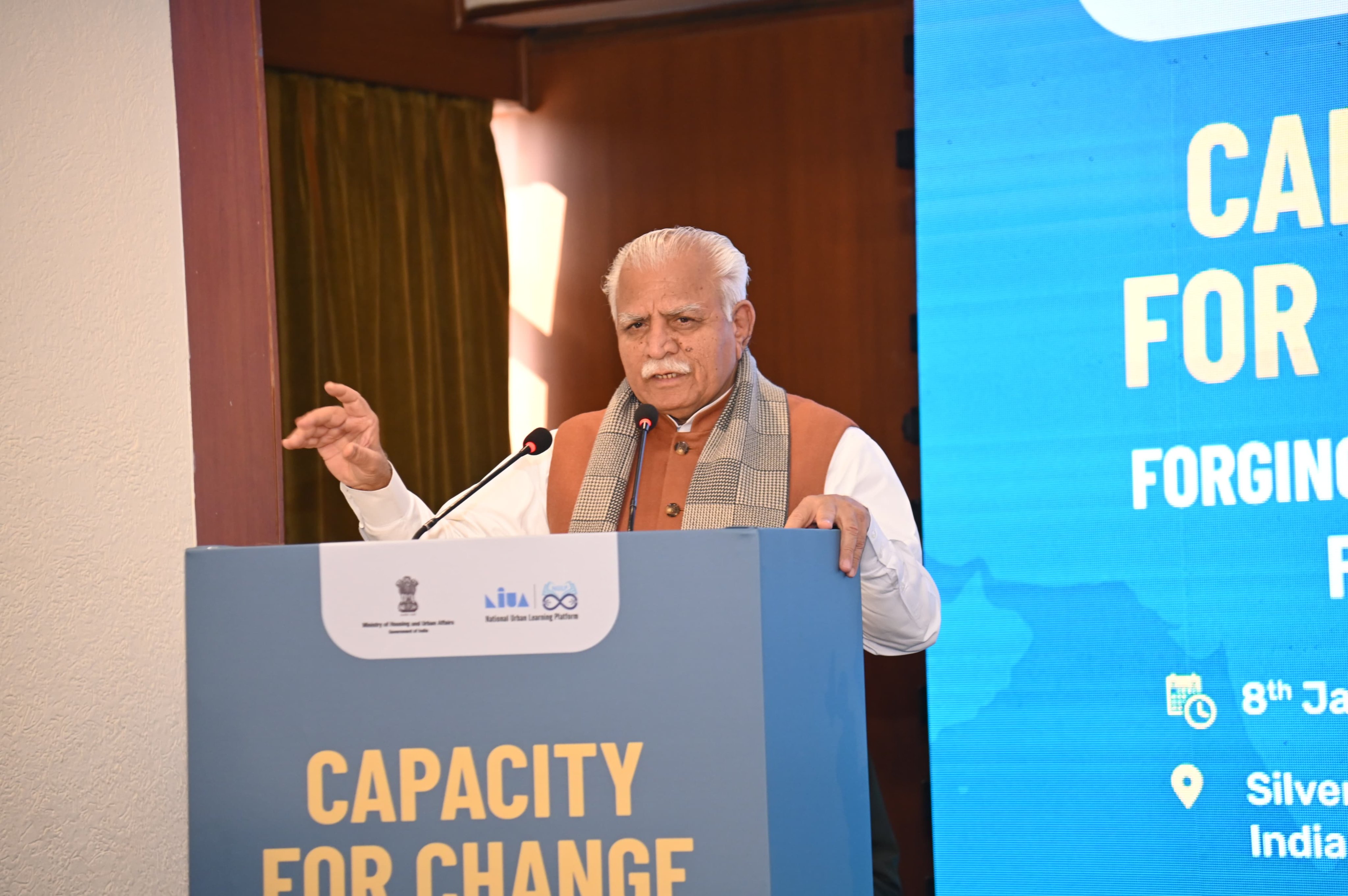Manohar Lal Inaugurates ‘Capacity for Change’ Conference: Aiming for Citizen-Centric Sustainable Urban Governance
Hon’ble Minister of State for MoHUA, Shri Tokhan Sahu, highlighted the government’s commitment to creating equitable and sustainable cities.

- Country:
- India
The Union Minister for Housing and Urban Affairs, Shri Manohar Lal, inaugurated the ‘Capacity for Change: Forging Sustainable Futures’ Conference today at the India Habitat Centre, New Delhi. Organized by the National Institute of Urban Affairs (NIUA) under the aegis of the Ministry of Housing and Urban Affairs (MoHUA), the event brought together policymakers, urban practitioners, and experts to deliberate on building institutional capacity for effective and inclusive urban governance.
In his inaugural address, Shri Manohar Lal emphasized the importance of equipping government staff with skills and knowledge to manage cities better, ultimately enhancing the ease of living for citizens.
"Our goal is to reimagine India’s historic cities while addressing urban expansion and integrating advanced technologies like artificial intelligence to shape future cities. By 2047, 50% of India’s population is projected to live in urban areas, making this a critical juncture for action," he stated.
Hon’ble Minister of State for MoHUA, Shri Tokhan Sahu, highlighted the government’s commitment to creating equitable and sustainable cities.
"Innovation in urban governance must be citizen-centric, with active involvement of marginalized communities to make cities inclusive and examples of equity and equality," he remarked.
Shri Rahul Kapoor, Joint Secretary, MoHUA, elaborated on the Ministry’s initiatives, emphasizing the role of technology in addressing urban challenges. He spotlighted the National Urban Learning Platform (NULP) as a key tool in empowering urban officials, with over 107,825 members and 500 Urban Local Bodies (ULBs) engaged in 114 courses.
Conference Sessions: Building a Resilient Urban Future
The conference featured engaging sessions on critical themes:
- Capacity Building as a Catalyst for Sustainable Urban Transformation
- Building Institutional Capacity for Sustainable Urban Governance
- Digital Governance for Citizen-Centric Urban Administration
Experts explored the potential of technology, data, and citizen engagement to drive urban governance innovations.
Knowledge Products and Launches
Several key knowledge products were unveiled at the event:
- Urban Learnathon 2.0: A collaborative initiative encouraging innovative solutions to urban challenges.
- NULP 4.0: India’s largest digital learning platform for urban practitioners, fostering co-learning and collaborative problem-solving.
- ‘Know Your Ministry’ Course: A comprehensive guide to MoHUA’s vision, mandate, and achievements.
- Pathways for Mainstreaming Urban Climate Action: A discussion paper on urban climate resilience strategies.
- Cybersecurity Handbook for Smart Cities: A guide addressing security challenges in digital urban spaces.
- City Innovation eXchange (CiX) Compendium of Success Stories: Showcasing innovations by startups in urban problem-solving.
Additional publications included:
- Towards a More Efficient and Equitable Property Tax System: The Next Step
- Compendium of Coastal Nature-based Solutions (UrbanShift, NIUA)
- Transforming Cities Playbook: Highlighting Integrated Command and Control Centers (ICCCs).
- Vibrant Public Spaces: Showcasing water and park landscapes under the Smart Cities Mission.
Key Highlights
- Technology Integration: Emphasis on leveraging AI and digital platforms for governance.
- Citizen-Centric Approach: Involving citizens in urban planning and implementation.
- Climate Action: Addressing the urban impact of climate change.
Conclusion: Collaborative Governance for a Brighter Future
Dr. Debolina Kundu, Director (AC) at NIUA, underlined the importance of partnerships across government, academia, and civil society for sustainable urban futures.
The "Capacity for Change" conference marked a decisive step in rethinking urban governance in India. By fostering collaboration, leveraging technology, and embedding inclusivity in planning, the initiative seeks to empower practitioners to navigate urban challenges and transform Indian cities into models of sustainability and resilience.
- READ MORE ON:
- Manohar Lal
- Capacity for Change’ Conference










